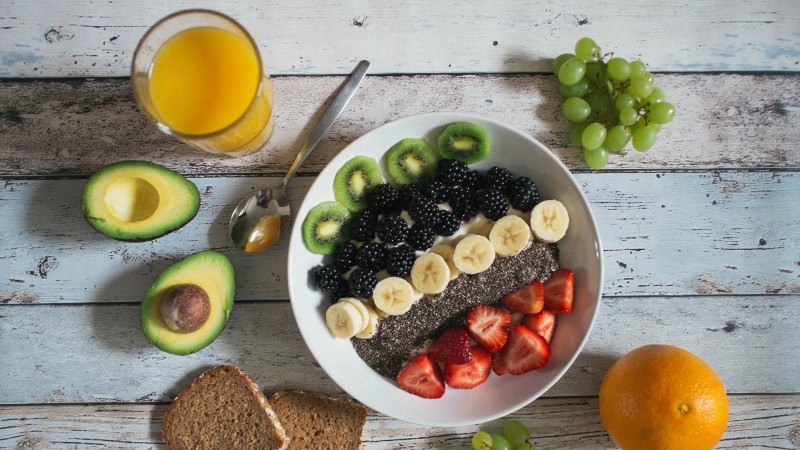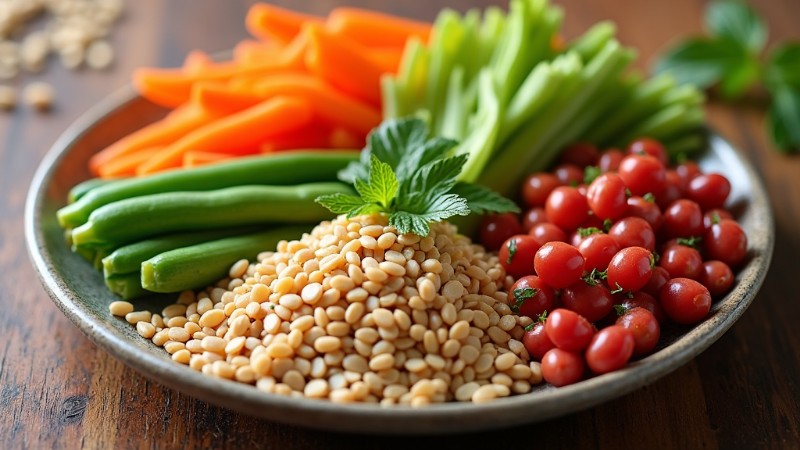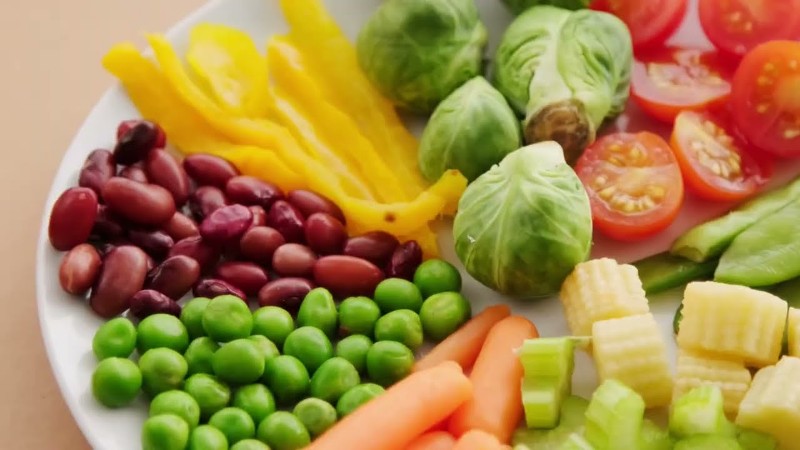Your nutrition and diet play a pivotal role in promoting both healthy digestion and weight management. Whether you’re looking to shed a few pounds or simply improve your gut health, focusing on nutrient-rich foods can support your overall well-being. Below, we’ll explore a selection of foods that not only help with weight management but also promote smoother digestion, ensuring a balanced approach to maintaining your health.
Fill up on fiber to prevent constipation
Fiber is crucial for maintaining a healthy digestive system. It helps regulate bowel movements and prevents constipation. Most people don’t consume enough fiber, but it’s recommended to get at least 25-30 grams daily.
Whole grains: Foods like wholemeal bread, brown rice, and oats are excellent fiber sources. Whole grains also contain omega-3 fatty acids and nutrients that support healthy gut bacteria. However, some people with IBS might find certain grains trigger bloating or other symptoms, in which case it’s advisable to focus on getting fiber from fruits and vegetables instead.
For digestive health, experts recommend consuming at least 25 grams of fiber daily, which is more easily achieved by choosing whole grains over refined carbohydrates like white bread and pasta.
Fruits and Vegetables: Leafy greens, such as spinach and kale, offer not only fiber but also essential vitamins like folate, vitamin C, and vitamin K. Low-fructose fruits, like berries and citrus, are easier on the gut and can reduce bloating and gas.
Fruits such as oranges, avocados, and berries are rich in fiber and water, supporting digestion and curbing hunger. Oranges boost stomach acid with vitamin C, while avocados provide healthy fats and fiber that help prevent constipation and promote fullness. Nuts, high in healthy fats and protein, can boost metabolism and support weight loss, but portion control is essential due to their high-calorie content.
Choose lean proteins over fatty foods
High-fat foods like fried dishes, red meat, and greasy snacks can slow digestion and cause discomfort, including stomach pain and heartburn. Reducing your intake of these foods can ease your digestive workload.
Lean Proteins: Opt for lean meats like chicken or fish. Lean proteins are better for those with IBS or sensitive stomachs. They’re easier to digest and less likely to trigger digestive issues.
Fish is great for digestion and weight management, thanks to its omega-3 fatty acids and nutrients. Cutting back on high-fat foods reduces bloating and gas while still providing protein for muscle repair and fullness.
Avocado: Avocados are another powerful superfood that promotes both weight management and healthy digestion. Rich in fiber and nutrients like potassium, they support digestive function while helping you feel full. Their low-fructose content also makes them less likely to cause bloating or gas.
However, as with any nutrient-dense food, moderation is key. Although avocados are packed with healthy fats, they are also calorie-dense, so portion control is essential to avoid overeating.
Probiotic-rich foods
Probiotic-rich foods like yogurt and kefir play a significant role in gut health, helping improve digestion and even supporting weight loss. The live cultures in these foods balance gut bacteria, which is essential for proper digestion and nutrient absorption. Some studies also suggest that probiotics may reduce belly fat and assist in weight loss by improving gut health.
Greek yogurt is another excellent choice, providing a good amount of protein per serving while containing beneficial probiotics. Full-fat varieties of yogurt may even help reduce the risk of obesity and type 2 diabetes when consumed in moderation, although research on this is still ongoing.
How to incorporate these foods into your diet
Incorporating weight-loss-friendly and digestion-supporting foods can be simple. Add leafy greens to salads or smoothies, replace refined grains with whole grains, and include eggs or yogurt in your breakfasts. Snack on fiber-rich fruits like oranges or apples throughout the day.
Aim for balanced meals with protein, healthy fats, and fiber to promote fullness and digestion. A salad with leafy greens, avocado, grilled chicken, and roasted vegetables is a great option.
Smart dietary choices are essential for healthy eating and can help achieve a healthy weight. Foods high in fiber, protein, and nutrients, like leafy greens, fish, whole grains, and yogurt, can improve satiety and digestion, supporting overall well-being.















